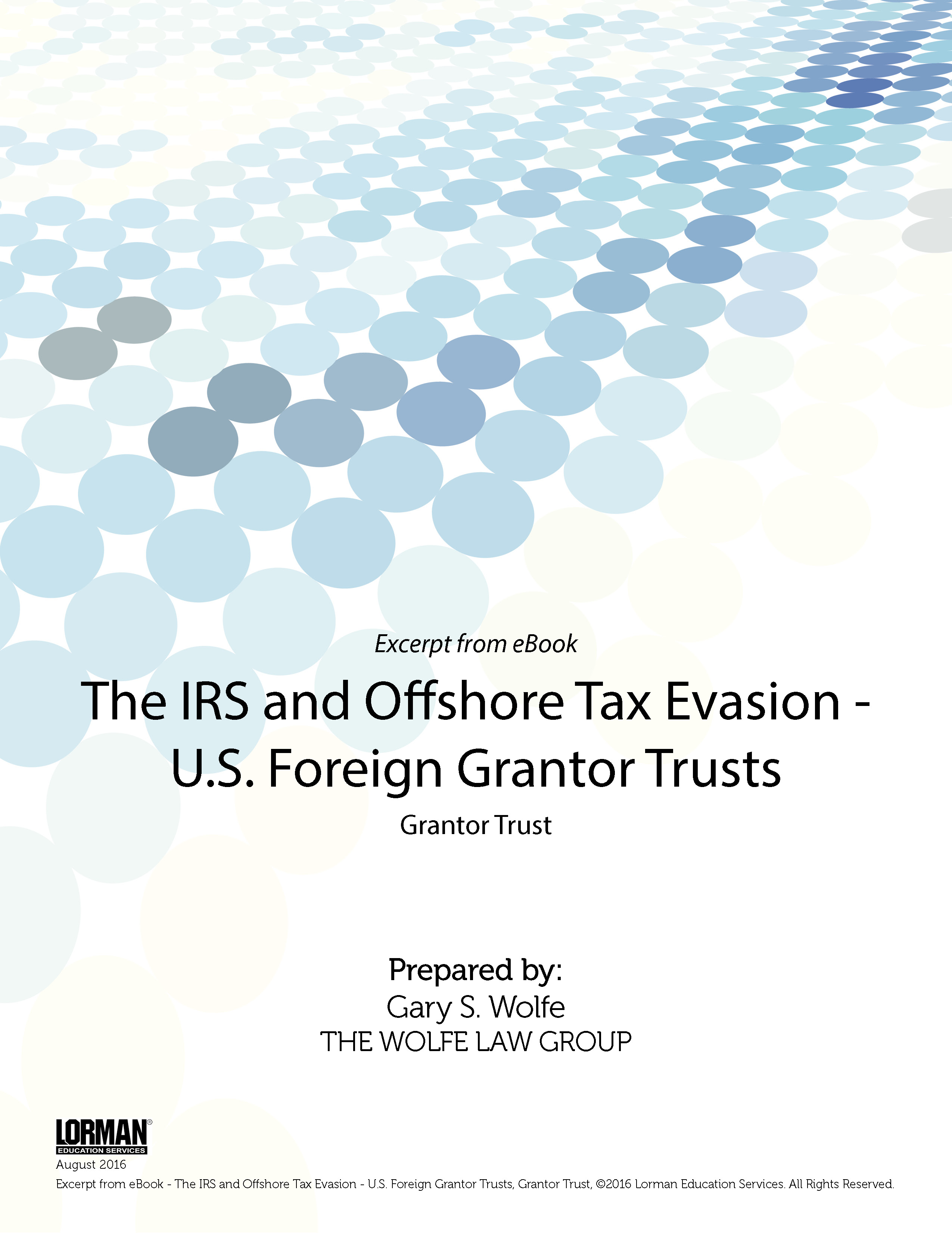“If the trust is a grantor trust for income tax purposes, a sale of assets to the trust by the grantor is disregarded. (See Rev. Rul. 85-13, 1985-1 C.B. 184).
If the non-contributing spouse has a discretionary interest as to both income and principal, the trust is a grantor trust under IRC Sec. 677(a)(1) to the contributing spouse. No income tax realization event occurs and the policy proceeds are excluded from both estates (Ltr. Rul. 9413045).
Intentionally Defective Grantor Trust
An “Intentionally Defective Grantor Trust” (“IDGT”) takes advantage of the differences between the estate tax inclusion rules of IRC Sections 2036-2042, and the grantor trust income tax rules of IRC Sec. 671-678. An IDGT is an irrevocable trust that effectively removes assets from the grantor’s estate. As a result, a sale of assets to an IDGT can freeze an individual’s estate by converting appreciating assets into a non-appreciating asset with a fixed yield.
For income tax purposes, the trust is “defective” and the grantor is taxed on the trust’s income.”
Download this white paper to continue reading …
Our author, Gary S. Wolfe, has more than 34 years of experience, specializing in IRS Tax Audits and International Tax Planning/Tax Compliance, and International Asset Protection.
Thank You!
Download White PaperMore Program Information
